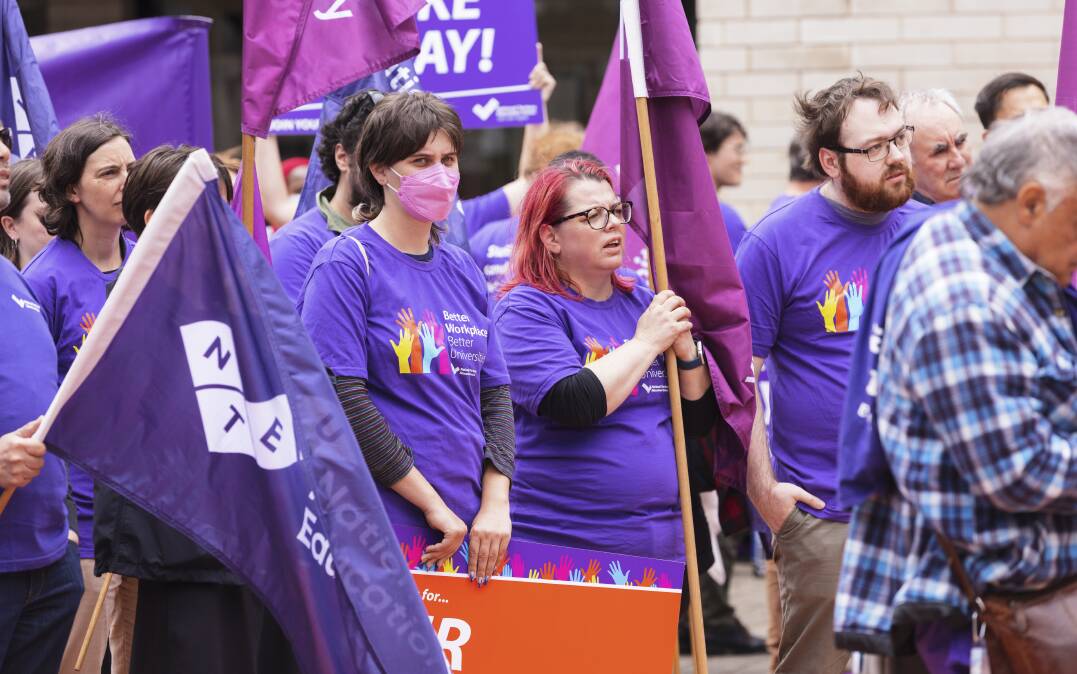
The University of Canberra is close to reaching an agreement which would give staff a pay rise of 3.5 per cent for three years and a $1000 one-off payment to assist with the rising cost of living.
The National Tertiary Education Union initially rejected the 3.5 per cent pay cap in favour of a pay rise in line with inflation and held a half-day strike in October.
With an end-of-year deadline approaching, both parties have agreed in principle to a suite of workload reduction and job security measures.
University of Canberra deputy vice chancellor academic Geoff Crisp said the bargaining team was working with the union to finalise the wording of the agreement.
This would be put to staff for a vote in late January at the earliest before being submitted to the Fair Work Commission.
"To give certainty to our staff and also to acknowledge the hard work that they've done, we think 3.5 per cent was a reasonable pay rise that we could put on the table given the financial situation of the university," Professor Crisp said.
NTEU ACT division secretary Dr Lachlan Clohesy said in an email to members there was a clear pathway to reaching an agreement in enterprise bargaining with the university.
"We've managed to negotiate a pathway to an agreement that will maintain competitive salaries but dramatically improve conditions in a range of areas," he said.
"We look forward to bringing a draft agreement to members in the new year."
Staff will get pay increases of 3.5 per cent for three years then from 2026 pay rises will be contingent on the consumer price index, with a 1.75 per cent floor and 3.5 per cent cap.
Level A academic staff and professional staff on levels one to seven will be in line for the $1000 cost of living payment after the agreement is signed off.
University staff will be entitled to 60 days of gender affirmation leave for the first time.
Aboriginal and Torres Strait Islander staff will have cultural leave increased from five to 10 days.
Academics will have their cap face-to-face teaching weekly hours reduced and will have a guaranteed eight-week continuous period without face-to-face teaching.
Professor Crisp said academics would work the same amount of hours annually but it would be distributed over a longer number of weeks.
"The issue was really about the intensity of the workload rather than the totality of the workload," he said.
Professional staff will have improved mechanisms for escalating workload issues and casual professional staff will get better access to overtime.
Academic casuals and fixed-term staff will have an enforceable entitlement to conversion to ongoing positions based on eligibility criteria.
Academic staff will be able to manage their own work location and hours.
Non-casual staff will get 17 per cent employer superannuation contributions.
Meanwhile, Australian National University staff will be getting a 3.5 per cent administrative pay increase from February and early payment of annual leave loading to alleviate pressure from inflation.
Negotiations for a new enterprise agreement at ANU will continue at in 2023.
We've made it a whole lot easier for you to have your say. Our new comment platform requires only one log-in to access articles and to join the discussion on The Canberra Times website. Find out how to register so you can enjoy civil, friendly and engaging discussions. See our moderation policy here.







